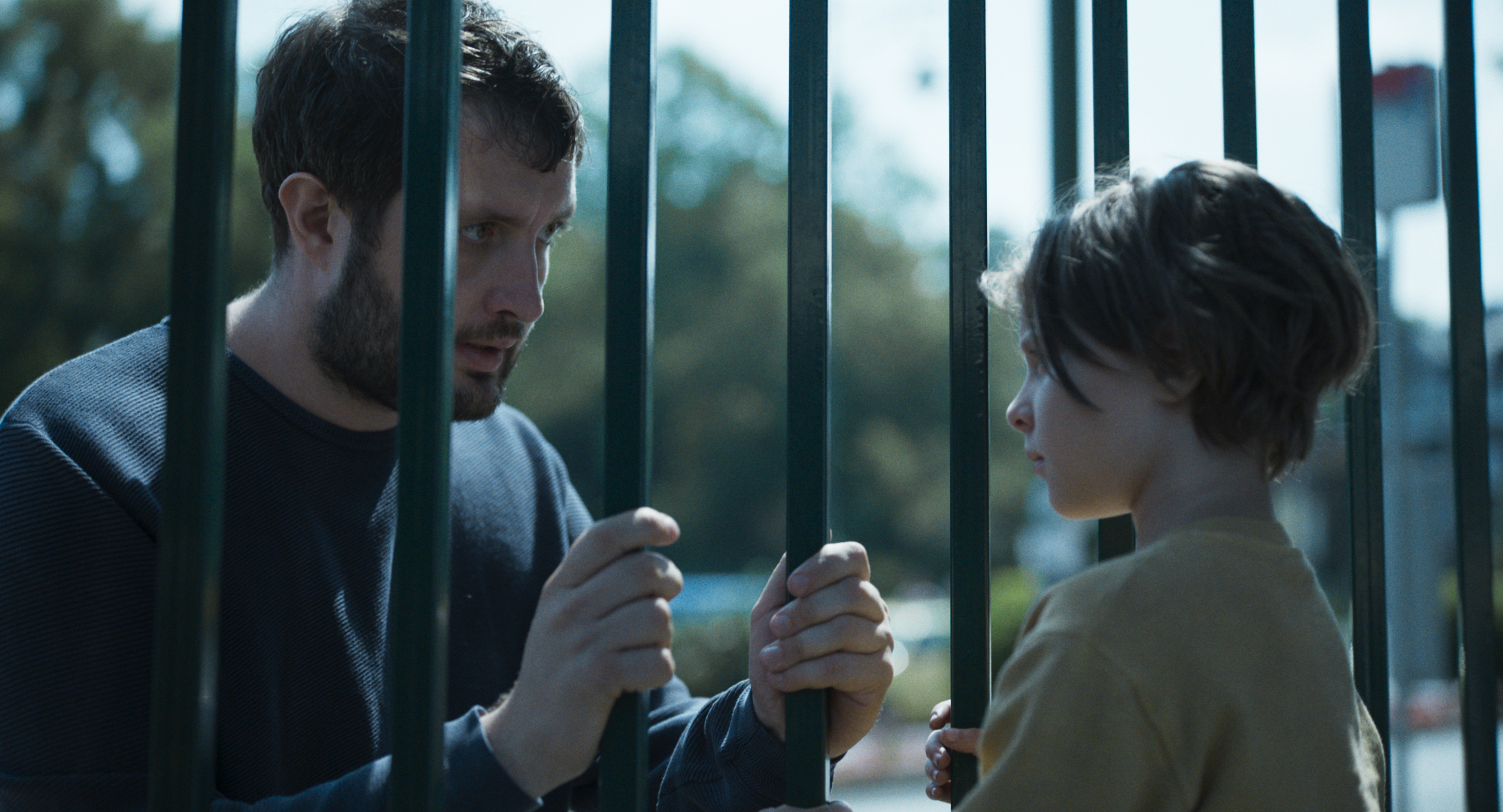Nora is seven, and it's her first day at school. Big brother Abel, already enrolled in their local primary, promises to find her at playtime. Prised away from her father's embrace, tearful Nora is set up from the opening moments of Playground as a sensitive child.
The cold blue colour grading, atmospheric sound design, and choice of camera perspective – always from the height of a child – immerses the audience from the very first moment in Nora’s experiences. No score distracts from the cacophony of the playground, the overwhelming echo and crash of the swimming pool. Quasi-documentary in feel, this is stylised but realist filmmaking.
Playground comes out in the UK after winning its first-time director, Laura Wandel, the FIPRESCI (Critics) prize at Cannes and being chosen to represent Belgium in the Oscars. It’s a brilliant and gruelling watch for everyone who ever felt they didn’t fit in at school themselves, and it will doubtless resonate with parents of school-age children and teachers with experience of bullying.
The film’s French title Un Monde translates as "a world", which is more apt than the English one. It’s not just the school's playground, but the canteen, changing rooms, toilets and classrooms, too, that comprise Nora's hostile new world. The camera frames school entirely from her perspective. Teachers are often out of focus and the faces of adults appear only when they bend down to talk to a child. Cinematographer Fréderic Noirhomme sticks to this vantage point throughout. It reminded me at times of the immersive camerawork deployed by Matyas Erdely in Son of Saul, which followed its leading character as he struggled to survive in Auschwitz.
Belgian education seemingly revolves around endless drills – including exacting gym sessions, swimming classes and rote reading aloud in class. Though Wandel founded the script on her childhood memories, she ran workshops with her non-professional child actors and used puppets and drawings to work out the narrative with them, incorporating the children’s own observations and speech patterns into the final version. Director Sarah Gavron and writers Theresa Ikoko and Claire Wilson took a similarly collaborative approach in making Rocks, their film about teenage girls in London.
From the outset of Playground, Nora and Abel struggle with the potential for cruelty that children often inflict on each other. Any sign of weakness or difference leads to exclusion; social and class hierarchies prevail. When Nora seeks out Abel in the playground during that very first break-time, he tells her, "Don’t come over here. We are beating up the new kids with Antoine." It’s a case of joining up with the bully or becoming the victim. Adults seem unable to prevent these ritualised torments. (Pictured below: Maya Vanderbeque as Nora with Karim Leklou as her father) We never learn if the siblings' mother is part of the family, if she's working, dead, or estranged from the children and their anxious father. In the scrum of parents at collection time, he cuts an unusual figure among the sea of mothers. Nora's classmates deduce that he is their main carer, and they tell Nora he must be a scrounger if he doesn’t work. Invites to birthday parties are withdrawn, petty slights escalate into physical aggression.
We never learn if the siblings' mother is part of the family, if she's working, dead, or estranged from the children and their anxious father. In the scrum of parents at collection time, he cuts an unusual figure among the sea of mothers. Nora's classmates deduce that he is their main carer, and they tell Nora he must be a scrounger if he doesn’t work. Invites to birthday parties are withdrawn, petty slights escalate into physical aggression.
Drawing her father and teachers' attention to the bullies’ vicious practices doesn’t make things better. Nora observes, "When you try and help people, things get worse." When the children’s attempts to protect one another backfires, the film becomes immensely distressing.
The novice child actors are extraordinarily good. Tomboyish Maya Vanderbeque holds the screen throughout as Nora; we watch every emotion flicker across her face. Wide-eyed, skinny Günter Duret is wholly convincing as the beleaguered Abel. These kids' ordeal seems interminable, yet Playground is only 72 minutes long. Viewers nostalgic for their own happy school days will be sorely disappointed. But admirers of the Dardennes brothers’ films with their critique of how Belgian society treats people living on its fringes will find Wandel's movie fascinating.















Add comment